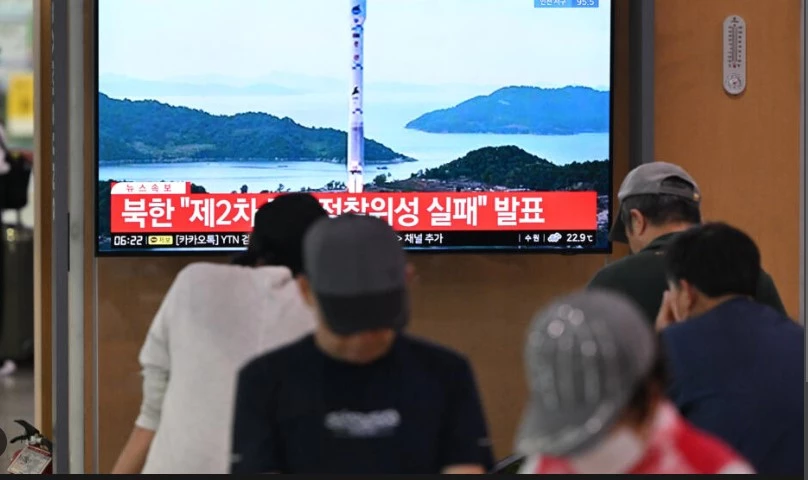North Korea notifies Japan of satellite launch as early as Wednesday

Stay tuned with 24 News HD Android App

North Korea has issued formal notice of a satellite launch as early as Wednesday, Japan said, with Pyongyang's third attempt to put a military eye in the sky coming after it likely received technical help from Russia in exchange for arms transfers.
The Japanese coast guard posted a notification on its website Tuesday of a launch window between November 22 and December 1, and Seoul's Ministry of Oceans and Fisheries immediately issued a navigation warning for ships over the launch.
Japanese Prime Minister Fumio Kishida told reporters he had instructed government ministries and agencies to keep the public informed, "to demand cancellation of the launch... and to make utmost efforts in preparing for unpredictable situations".
He added that any use of ballistic missile technology by Pyongyang would represent a breach of UN resolutions and that Japan was coordinating its response with South Korea and the United States, its partners in a trilateral defence arrangement.
North Korea has previously identified three maritime zones that could potentially be impacted by the planned launch, two in the Yellow Sea, west of the Korean Peninsula, and a third in waters east of the Philippines.
"The danger zones notified by North Korea this time align with the danger zones that were announced during their satellite launch plan in August," a South Korean official said, according to the Yonhap news agency.
Seoul has been warning for weeks that Pyongyang is in the "final stages" of preparation for another spy satellite launch, with defence minister Shin Won-sik saying Sunday that the lift-off could take place as early as this week.
"We sternly warn North Korea to... immediately suspend the current preparations to launch a military spy satellite," Kang Ho-pil, chief director of operations at the South Korean Joint Chiefs of Staff, said Monday.
"If North Korea goes ahead with the launch of a military reconnaissance satellite despite our warning, our military will take necessary measures to guarantee the lives and safety of the people."
- Russian help -
North Korea's first and second attempts to put a spy satellite into orbit, in May and August respectively, both failed, with Pyongyang promising to carry out a third in October, which never materialised.
The country is barred by successive rounds of UN resolutions from tests using ballistic technology, and analysts say there is significant technological overlap between space launch capabilities and the development of ballistic missiles.
South Korea has said it expects Pyongyang's third launch to be more successful than previous attempts, as the North has likely received help from Russian experts in exchange for arms transfers to Moscow for its war in Ukraine.
Russian President Vladimir Putin suggested in September after a meeting with North Korean leader Kim Jong Un that his nation could help Pyongyang build satellites.
Successfully putting a spy satellite into orbit would improve North Korea's intelligence-gathering capabilities, particularly over South Korea, and provide crucial data in any military conflict, experts say.
North Korea has conducted a record number of weapons tests this year, ignoring warnings from the United States, South Korea and their allies.
Last week, it said it carried out successful ground tests of a "new type" of solid-fuel engine for its banned intermediate-range ballistic missiles, calling the weapons a crucial safeguard against "the grave and unstable security environment".
Seoul, Washington and Tokyo have ramped up their defence cooperation in response, and on Tuesday a US nuclear-powered aircraft carrier, the USS Carl Vinson, arrived at South Korea's Busan Naval Base.
Seoul's military said the visit was to enhance the allies' "posture in response to North Korea's nuclear and missile threats".
The visit is part of the recent agreement to enhance the "regular visibility of US strategic assets" and promote "shared extended deterrence" between the United States and South Korea, it added.
"Through close cooperation between the navies of the two countries, we will be equipped with the ability and posture to win even if we fight right now," Seoul's navy said in a statement.
